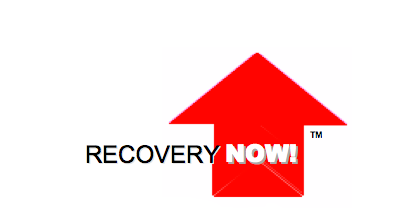Addiction Recovery Diet
Addiction Recovery Diet

Addiction Recovery Diet:
Eating Tips for Recovering Addicts/Alcoholics
When you are recovering from alcohol or drug abuse, the main focus is on avoiding the drug/alcohol that caused the problem in the first place. However, there is another important aspect of recovery that may be overlooked or neglected. What you eat and even when you eat can have a tremendous impact on your successful recovery.
Although eating healthy is only one aspect of a successful recovery from drug/alcohol abuse, by taking care of your body your chances of success will be greatly increased.
Here is a list of eating tips to help you have a successful addiction recovery diet.
|
*First, be sure to eat regularly. You are less likely to experience the cravings and low blood sugar that can lead to relapse if you eat three regular meals and two in-between snacks each day. *Drink plenty of water. Dehydration can be a problem during recovery so be sure to drink a lot of clean water. *Eat foods rich in protein such as lean meats, poultry, seafood, beans and nuts. You need protein to produce the chemicals in your brain that make you feel good, as well as to replace tissues damaged by the drug/alcohol abuse. *Eat a variety of fresh fruits and vegetables either raw or lightly cooked-at least five servings a day. They are loaded with the vitamins, minerals and phytonutrients that you need to recover and feel good. *High fiber foods, including whole grains and beans to help restore health and tone to your digestive tract that may have been damaged by drug/alcohol abuse. *Include healthy fats for flavor and good health. These include foods such as olive oil, avocados and nuts. Fats are important for the health of your cell membranes, which is basic to how you feel, and thus to your recovery. *Enjoy a small piece of good quality dark chocolate. It can enhance your mood as well as please your taste buds. Just don’t overdo! *Take a good quality vitamin/mineral supplement with particular emphasis on Vitamin C, B vitamins and zinc to restore the levels of these vitamins in your body. Although, it’s always better to get your vitamins and minerals from foods, a supplement can help fill in the gaps until your nutrient status is reestablished. *Limit saturated fat by choosing lean meats and dairy products. *Limit processed and packaged foods. These are generally loaded with sugar, salt, trans fats and other chemicals that may slow your physical recovery. Also, try to avoid fast food because usually there is little or no nutrition in it. *Limit coffee/caffeine. It can affect your mood and irritate already inflamed digestive tissues. Try to get enough sleep. |
Guest blog from health expert Suzy Staywell and her great addiction recovery diet
Click here to go to Healthy Eating Home page for more about Eating Right for Recovery.
For more about Addiction Recovery Diet visit our home page.

Are you or a family member struggling?
Do you need help RIGHT NOW?
Available 24/7 for HELP!

and Finally Remember:
“Ask and it will be given to you; seek and you will find; knock and the door will be opened to you. For everyone who asks receives; he who seeks finds; and to him who knocks, the door will be opened.”
– Matthew 7:7-8
Today’s Show
Sharing from the heart is an important part of your recovery, this week on Recovery Now!
Search Drug-Addiction-Support.org Here!
Haven’t found the information on drug and alcohol addiction that you were looking for? Please enter your search term below and search this site.
/**/
Follow on Twitter or Google+
